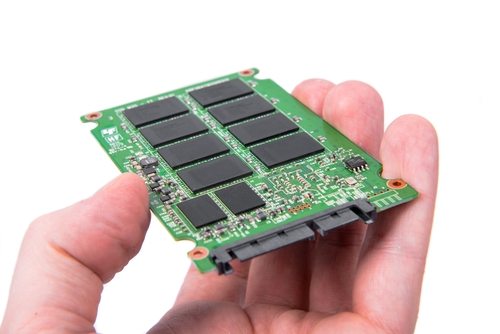
As a small business owner, you have to deal with your IT issues which could include deciding what kind of hosting you will need for your website; because, without your website, you really aren’t a business.
Apart from simply inquiring about what packages and features are available to you, you should look into what kind of hardware is involved in your hosting deal.
And a good place to start is by asking if SSD web hosting is involved.
What is SSD Web Hosting?
SSD stands for Solid State Drives. These drives store data and host operating systems in a semi-conductor device just like a flash drive. What makes it different is that the drives have no moving or mechanical parts like the rotating heads or spinning disks that are found in Hard Disk Drives (HDDs).
SSDs use integrated circuit assemblies for memories and to store data persistently. They primarily use electronic interfaces that are compatible with traditional block input/output or I/O hard disk drives.
What are the advantages you get with SSD web hosting?
Opting for a hosting provider that has SSDs instead of the traditional disk drives will probably cost you a little more as the technology is still a bit on the expensive side. But that shouldn’t worry you much as the costs become insignificant as you will be recompensed due to the following reasons:
- They start up really quickly: the start-up times of SSDs is almost instantaneous. This is mainly because of the fact that there are no mechanical components to prepare and fire up. All that is required is a few milliseconds and the disk is up and running from an automatic power-saving mode.
This means, should there be a problem with your server at the provider’s end you won’t have to wait as long as it would take in the case of HDDs where (in case there are multiple drives) it would take longer to stagger-start spin-ups to conserve the power which is usually high when they are first booted.
In other words, your down time is minimal even when a reboot is required.
- Data access is really fast: in SSDs, data can be accessed directly and simultaneously from various locations on the flash memory. This is in comparison to having to wait for the heads in the HDDs to move and the wait for the data to rotate and arrive under the read/write heads.
The read time is always consistent throughout the SSDs’ life time because the data isn’t written in a fragmented way and doesn’t need to be “searched and retrieved” and no defragmentation is involved as would be the case in HDDs.
SSDs can be up to 12 times faster than HDDs when it comes to retrieving data. This is a significant amount when you have hundreds of people accessing your website and requesting or storing data on your servers. It leads to happy customers who will keep coming back for more of your efficient services.
- Lower overhead: the expenses that are required to run an SSD server is much lower than one with an HDD (apart from the initial investment, i.e.). For one, SSDs are much smaller and very light and consume much less power. Second, they are very robust and aren’t affected by outside elements like magnetic fields that would wreak havoc on a standard mechanical and rotary disk.
To you, the client, this means the hosting provider can afford to give you the best service there is without incurring heavy costs – it makes it cheaper for you to sign up for. Then, you too can afford to lower your prices when it comes to your products and services.
- High Stability: as data is not retrieved by chasing it around a disk, there is almost no way for it to be skipped during encryption and decryption when it is stored on an SSD. This means it is guaranteed that all the data that your website stores or retrieves can be found where it is put, thus ensuring a smooth and continuous uptime.
- Increased data security: data loss when using traditional web hosting severs is quite a common occurrence. This is mainly because HDDs are very fragile and any slight mishandling could cause irreversible damage to the data stored on them.
On the contrary, due to the fact that SSDs do not have mechanical or moving parts, they tend to have high wear-and-tear thresholds over the long run. They do not use up much power which means they do not heat up and burn out.
All this means that they are much more durable and stand a much lesser chance of being damaged, and can hence keep your data safe and secure.
This point is critical because no business can survive or make a comeback after it has lost its clients’ and customers’ data (even if it were due to no fault of their own).
SSDs are the way of the future as everything mechanical is almost always replaced by the digital – unless you’re a curator of the classics, of course – and you would do good to get on board right now.



















